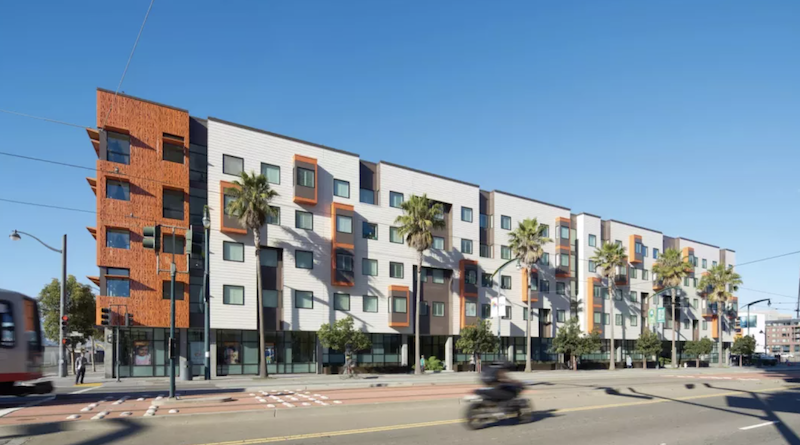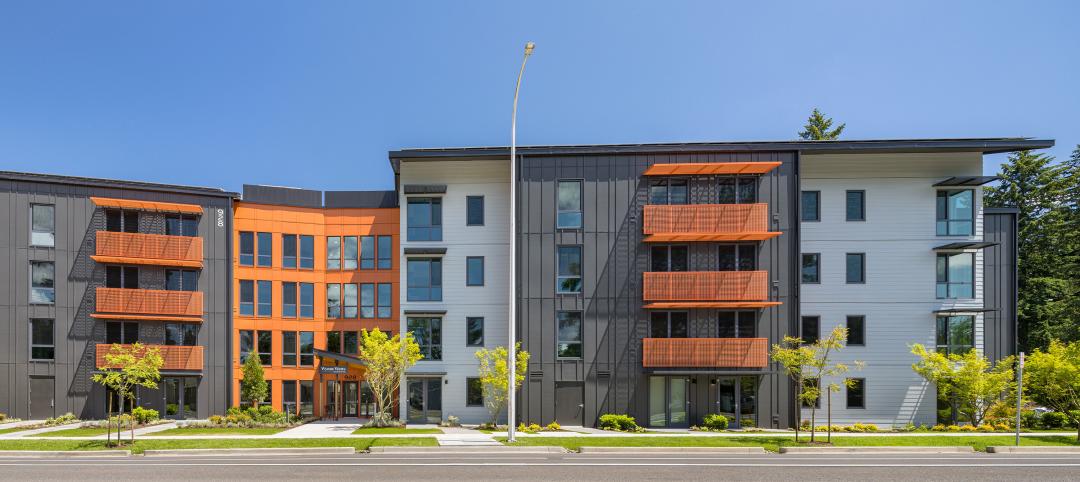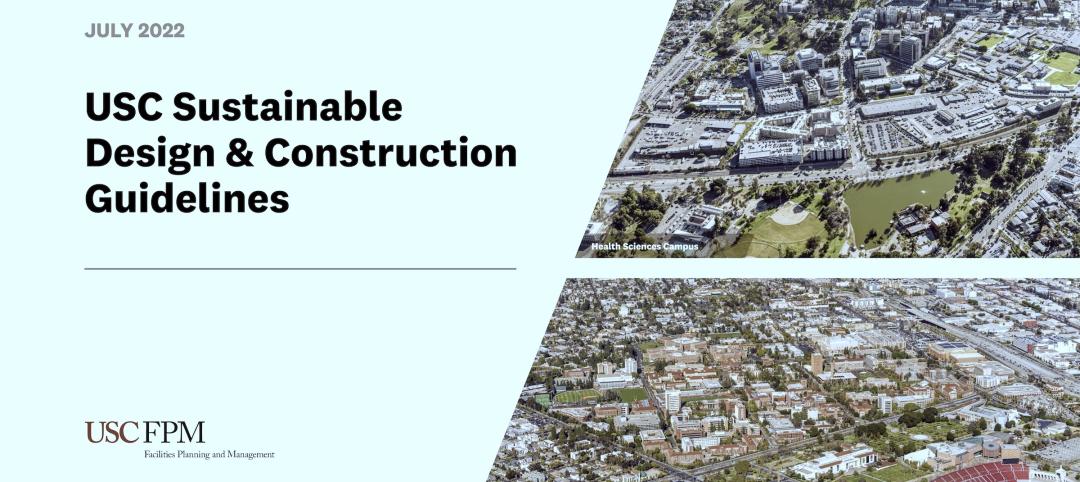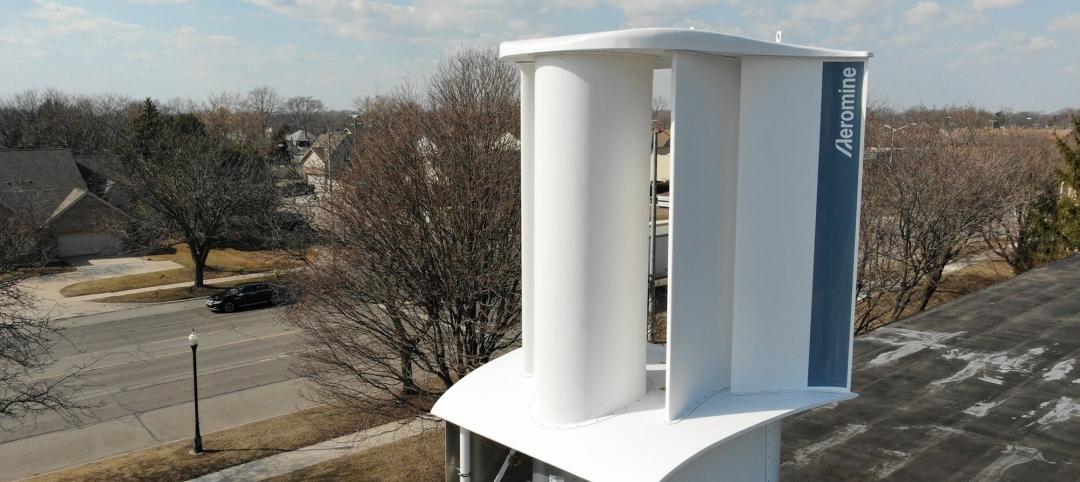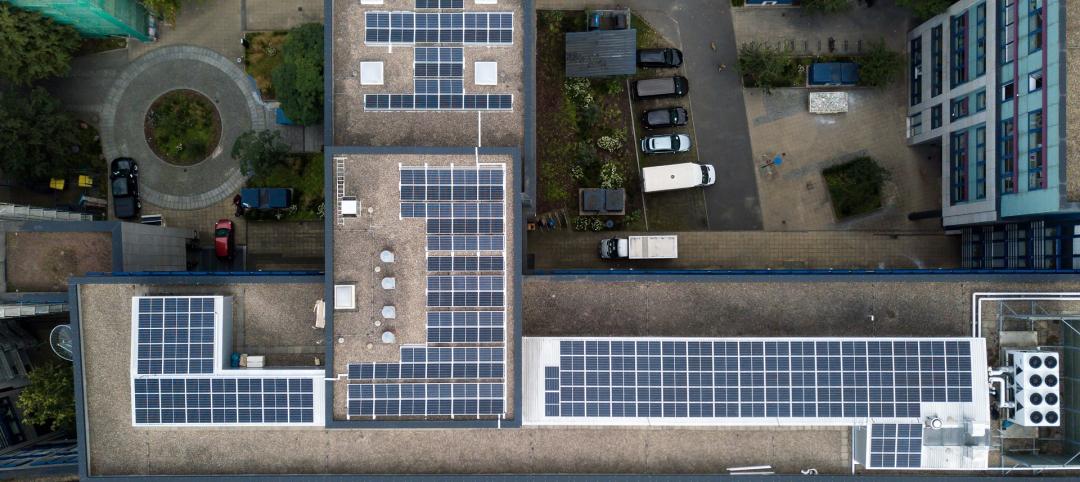Architects and engineers participating in the AIA’s 2030 Commitment are reporting the greatest reduction in predicted energy use (pEUI) in the program’s 10-year history.
“This year marks a critical inflection point for the program and climate action,” said 2020 AIA President Jane Frederick, FAIA. “This report outlines a vision for the coming years, which is anchored in community advocacy, adoption of on-site and off-site renewable energy sources, and increased attention to embodied carbon.”
The report—2030 by the Numbers: The 2019 Summary of the AIA 2030 Commitment—amalgamates predicted energy use data in buildings from 311 companies participating in the 2030 Commitment and analyzes design phase data from more than 20,300 projects. Architects, engineers, and building owners involved in the projects achieved a 49 percent overall pEUI reduction. The reduction is equivalent to avoiding 20.2 million metric tons of CO2 emissions. Other notable data included in the report:
- 241 whole building projects designed to be net-zero energy.
- 69 percent increase in firms meeting the 70 percent pEUI reduction since 2018.
- 27 large and small companies met 2030 Commitment targets.
As participants continue to improve reducing carbon emissions, AIA is upgrading its Design Data Exchange (DDx) platform to streamline the project reporting process and to improve user experience. The new platform will support optional data points—including embodied carbon and off-site renewables—that will deliver expanded insights into building performance.
AIA is also continuing its efforts to drive climate action in the built environment following its landmark initiative last year. Earlier this year, AIA released its Climate Action Plan and Architect’s Policy Platform, which outline AIA’s goals for carbon reduction and climate action policy initiatives respectively.
Complete details of the AIA 2030 Commitment program can be found on AIA’s website.
Related Stories
Energy | Mar 20, 2023
Battery energy storage market predictions are trickier than ever
Burns & McDonnell breaks down the state of battery energy storage today, from pricing concerns to alternative solutions.
Affordable Housing | Feb 22, 2023
Passive House, sustainability standards meet multifamily development
These multifamily developments are not only Passive House (PHIUS) certified, but affordable for tenants.
Sustainability | Feb 9, 2023
University of Southern California's sustainability guidelines emphasize embodied carbon
A Buro Happold-led team recently completed work on the USC Sustainable Design & Construction Guidelines for the University of Southern California. The document sets out sustainable strategies for the design and construction of new buildings, renovations, and asset renewal projects.
Sustainability | Feb 8, 2023
A wind energy system—without the blades—can be placed on commercial building rooftops
Aeromine Technologies’ bladeless system captures and amplifies a building’s airflow like airfoils on a race car.
Green | Dec 9, 2022
Reaching carbon neutrality in building portfolios ranks high for organizations
Reaching carbon neutrality with their building portfolios ranks high in importance among sustainability goals for organizations responding to a Honeywell/Reuters survey of senior executives at 187 large, multinational corporations. Nearly nine in 10 respondents (87%) say that achieving carbon neutrality in their building portfolio is either extremely (58%) or somewhat (29%) important in relation to their overall ESG goals. Only 4% of respondents called it unimportant.
Green | Dec 9, 2022
Newly formed Net Zero Built Environment Council aims to decarbonize the built world
Global management consulting firm McKinsey recently launched the Net Zero Built Environment Council, a cross-sector coalition of industry stakeholders aiming to decarbonize the built world. The council’s chief goal is to collaboratively create new pathways to cut greenhouse gas emissions from buildings.
Energy Efficiency | Dec 6, 2022
Washington state’s Building Code Council mandates heat pumps in all new residential construction
The Washington State Building Code Council has voted to require heat pumps for all new residential construction starting in July 2023. The new mandate has drawn criticism over concerns that it will add costs to housing construction, especially given current supply chain challenges for heat pumps.
Legislation | Nov 23, 2022
7 ways the Inflation Reduction Act will impact the building sector
HOK’s Anica Landreneau and Stephanie Miller and Smart Surfaces Coalition’s Greg Kats reveal multiple ways the IRA will benefit the built environment.
Energy-Efficient Design | Nov 14, 2022
How to achieve net zero energy in five steps
Martine Dion and Ethan Seaman share net zero energy best practices with owners and developers.
Green | Nov 13, 2022
NREL report: Using photovoltaic modules with longer lifetimes is a better option than recycling
A new report from the U.S. National Renewable Energy Laboratory (NREL) says PV module lifetime extensions should be prioritized over closed-loop recycling to reduce demand for new materials.


